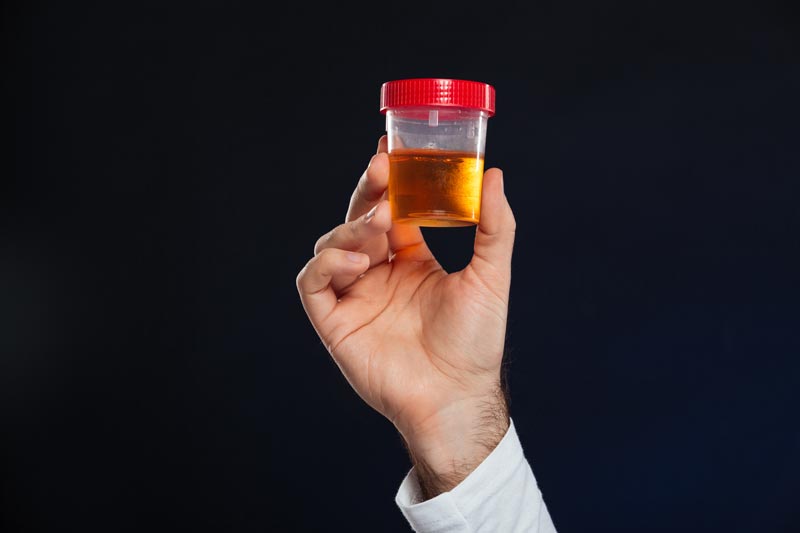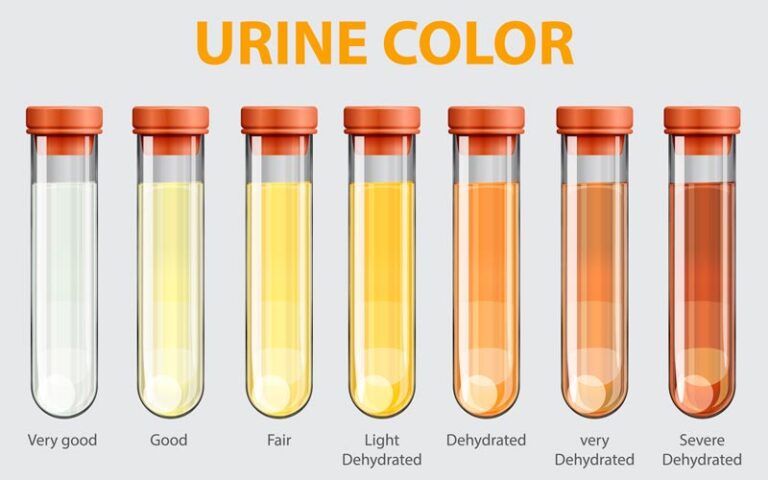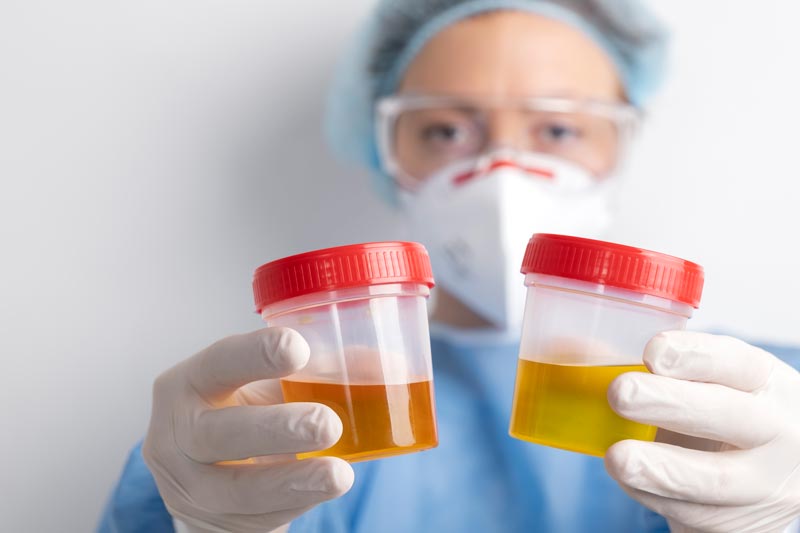
Although most of us consider urine as waste, it’s more valuable than you’d think. After all, it can reveal plenty of valuable information regarding your health.
A healthcare professional in an urgent care clinic in Fairfield, CT, can determine a urinary tract infection (UTI) from one sample from your pee, detecting early signs of chronic diseases. Moreover, testing your urine can help you find crucial clues about the nature of your symptoms.
When visiting DOCS Urgent Care and Primary Care Fairfield, our team can use the results from your urinalysis to confirm suspected UTI cases while screening signs of chronic illness during your routine or yearly physical exams. Aside from that, it can help you finish a pre-employment or recent hire physical required via our occupational medicine services.
As our kidneys remove waste from our body, they produce urine, removing waste products alongside excess fluids and other substances in your system. Due to this, your urine can contain various clues regarding your body’s overall state.
Meanwhile, a urinalysis refers to the testing of the urine, which involves checking its content, concentration, appearance, cells, and overall quality of the urine. All these help you point to a specific health issue you might be suffering from, making it easier to find the best treatment for your condition. Checking your urine’s visual, microscopic, and chemical aspects can provide valuable insight into your health. Many aspects of your health can be checked through urinalysis.
Your medical practitioner uses your symptoms and checks your current situation to see which
laboratory screening tests they must conduct to determine your condition and the best treatment in our on-site laboratory. For instance, if you visit our urgent care Fairfield walk-in clinic under the suspicion of having a UTI, your urinalysis results will differ of someone who goes to our medical office for a routine or annual physical exam.
Doctors often order urinalysis testing for several reasons, including
Other tests, like pregnancy and drug screenings, often rely on urine samples. However, these tests search for substances that aren’t in standard urinalysis testing.
Your doctor’s office will offer you a container or other receptacle for collecting urine. Depending on the circumstances, you may be asked to collect the urine sample at the office or to collect the sample yourself at home.
Use an alcohol swab to disinfect your urinary opening before you collect the sample. To get the most accurate results, you should collect your urine sample midstream. Start using the restroom, and slide the collection cup below your urine stream as you urinate. Aim to fill the cup at least a couple of times. Then, finish urinating in the toilet.
Bring the collecting cup to the specified location in the bathroom or doctor’s office. Urine samples should be refrigerated if they cannot be delivered to the lab within an hour after collection.
If you are simply having a urinalysis, you may eat and drink before the examination. If you have other upcoming tests, you may be required to fast before this urine test. Your physician will also provide detailed instructions on what to do next.
Numerous substances, including over-the-counter pharmaceuticals and dietary supplements, might alter the urinalysis results. Before urinalysis, inform your physician of any drugs, vitamins, or other supplements you are taking.
Urinalysis is a three-step procedure that involves the following examination components:

Urine Color and Appearance
Most of the time, a health care provider in urgent care in Fairfield looks at how a urine sample appears to the “naked eye.” They look to see if it’s clear or cloudy, light yellow, dark yellow, or a different color. A person’s normal urine color is yellow. However, it can range from nearly colorless to a pale yellow to a rich amber hue, depending on whether the individual’s pee is concentrated or diluted.
Some medicines and supplements you take, as well as some foods you eat, like beets, can change the color of your urine. However, an abnormal urine color may also be indicative of an illness. Red urine, for instance, may indicate sickness or injury to a portion of the urinary system if it indicates the presence of blood in the urine.
Cloudy urine is not necessarily an indication of unhealthy pee. Nontoxic substances like sperm or dead skin cells may cause cloudiness in the urine. Other substances that might cause cloudy urine, including white blood cells, red blood cells, and bacteria, may indicate various medical conditions, such as
A urine dipstick test determines the chemical composition of urine. A dipstick is a plastic strip with thin, chemically-treated pads which change color when exposed to particular substances. This phase of urinalysis measures the urine’s acid-base (pH) level, looks for abnormally high protein levels, identifies even tiny amounts of sugar (glucose) or ketones, and detects the existence of bilirubin or blood in the urine.
Particular dipstick tests can detect UTIs-associated chemicals (nitrites and leukocytes). However, other urine dipstick tests can also reveal pregnancy hormones and the existence of illicit drugs. The dipstick tests of today are extremely sensitive; unlike the previous mode of tests, they not only indicate the presence of a particular chemical but also reveal whether it is present at low, moderate, or high concentrations.
The last step in a urinalysis involves examining a concentrated urine sample under a microscope. Its purpose is to identify situations when abnormally high numbers of white blood cells, red blood cells, bacteria, or crystals are present in the blood.

Urinalysis can reliably diagnose a urinary tract infection (UTI) and provide insight into your general health. It can also provide more hints as to what may be causing unexplained symptoms such as chronic abdomen or back discomfort, frequent or painful urination, or blood in the urine.
Urine test results could suggest the presence of the following:
However, note that although urinalysis can provide clues about various health issues, it cannot give a definitive diagnosis of any of them on its own, and the findings of a urine test can be misleading. When a urinalysis comes out abnormal, more testing is required to determine the cause.
You can do various tests to determine if you are pregnant if your menstruation is late. On the other hand, they are not 100 percent trustworthy. Most urine tests can already detect if a woman is pregnant between eight and ten days after her menstruation is due.
Commonly, a urine sample is taken first thing in the morning, much like a fast urine test. You may find detailed instructions in the insert that comes with the product. It’s possible to purchase a pregnancy test from any local pharmacy, drug store, department store, or even online.
The placenta secretes a hormone called human chorionic gonadotropin (hCG), which can be detected in a pregnant woman’s urine.
Many women who want to determine if they are pregnant may first conduct a pregnancy test. If a woman takes the test too quickly while under the influence of medication or after consuming a large amount of fluid, she may get inaccurate results. Whether or not you are pregnant is something only a medical professional in a trusted urgent care facility in Fairfield can confirm.
In addition to blood and breath, drugs can be detected in urine for quite some time after consumption. Depending on the method used, traces of cannabis use can be identified weeks after consumption. Cocaine, ecstasy, and heroin, among others, can be detected in a person’s system for longer than five days.
It is also possible to utilize different test kinds here: While traditional drug tests must be submitted to a lab for processing, rapid tests give police immediate results at the scene. Athletes can also be tested for using illegal performance-enhancing drugs using urine samples.

Make an appointment with your doctor in a nearby urgent care Fairfield facility if you observe a change in your urine’s color, smell, or consistency lasting more than a few days.
Urinary tract infections (UTIs) are medical emergencies that require prompt medical attention if you have symptoms, including a strong, continuous need to urinate and a stinging pain when urinating.
A positive result from a urine test does not necessarily indicate the presence of a urinary tract infection. If your urinalysis turns up suspicious results, you may need further evaluation.
Equally, a negative urinalysis result does not rule out the possibility of a severe medical issue. However, the results may be inaccurate if you drink a lot of water before doing a urine test. Additional testing may be necessary if urine results are normal despite ongoing symptoms.
Do not hesitate to ask our professional physicians at DOCS Urgent Care & Primary Care Fairfield questions. Our staff is eager to assist you whether you need a urine test or other urgent care needs! Contact us today or visit our walk-in clinic.


During this surge in COVID-19 cases, our primary focus is meeting the high demand for tests, and we are seeing higher than usual wait times. This means we are unable to answer most phone calls. Please know that our teams are working very hard during this time to care for as many patients as safely as possible. Please click the button below for answers to common questions. We appreciate your understanding.